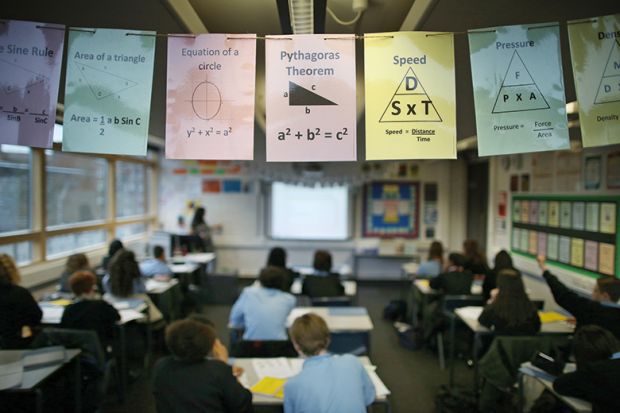The Australian National University’s move to make mathematics a prerequisite for all its degrees could put pressure on competitors that do not require it even for mathematically oriented courses.
The Canberra institution plans to make higher-level maths compulsory for all commencing domestic students from 2022, as part of a sweeping reform of its admissions. Deputy vice-chancellor Marnie Hughes-Warrington said that the change would improve students’ options, particularly if they came from disadvantaged backgrounds.
“This is about saying to students at school, ‘you’re going to need maths for more things than you might contemplate, and we need you to keep your options open’,” she said.
“We all know one brilliant person who didn’t do maths, but we don’t make admissions rules around one brilliant person.”
ANU’s approach could force other Australian universities’ hands over maths prerequisites, according to observers.
Many do not require higher maths qualifications for entry into science or technology courses – let alone humanities – largely for fear of deterring would-be students who have dodged the subject.
Many school students avoid maths because they believe that it limits their prospects of securing high grades that guarantee places in sought-after degrees. This perception has spawned a vicious circle, with a 2015 study finding that Australian take-up of maths degrees was less than half the average across Organisation for Economic Co-operation and Development countries.
Consequently, many secondary schools have no maths graduates on staff, forcing them to rely on non-specialist teachers who struggle to cultivate students’ interest in the subject.
The 2015 report found that 86 per cent of Australian science degrees did not require even intermediate-level maths. Research suggests that science, technology, engineering and mathematics undergraduates are more likely to drop out if they did not study advanced maths at high school.
Meanwhile a malaise in Australian STEM standards threatens to undermine the country’s future, as digital and data analytics skills become mainstream occupational requirements.
Rachel Wilson, an educational assessment expert at the University of Sydney, said that students who performed highly in school maths tended to do well in tertiary science courses. She said that she suspected maths was also a good predictor of arts success.
“Overall intelligence is made up of logic and speed,” Dr Wilson said. “Those are skills that are frequently developed through maths. People say, ‘why should I study maths?’ To become clever and quick at things, apart from everything else.
“Maths is foundational to science, but it’s also foundational to abstract thinking, which we need to advance science.”
Janine McIntosh, of the University of Melbourne-based Australian Mathematical Sciences Institute, said that students in disciplines such as archaeology, biology and psychology often overlooked these fields' mathematical nature.
“So much of our world is quantitative,” she said. “Having more numerate citizens can only be a good thing.”
But Ms McIntosh said that ANU’s new requirement would make little direct difference because the university already mandated medium or advanced level maths for entry into STEM courses. And with 80 per cent of high school students still studying some form of maths, few aspiring ANU undergraduates would be deterred by the new requirement.
She said the real need was for universities to require advanced maths for the courses that specifically required it – following the lead of the University of Sydney, which will next year demand at least intermediate maths for entry into degrees in fields such as economics, commerce, engineering, information technology and science.






